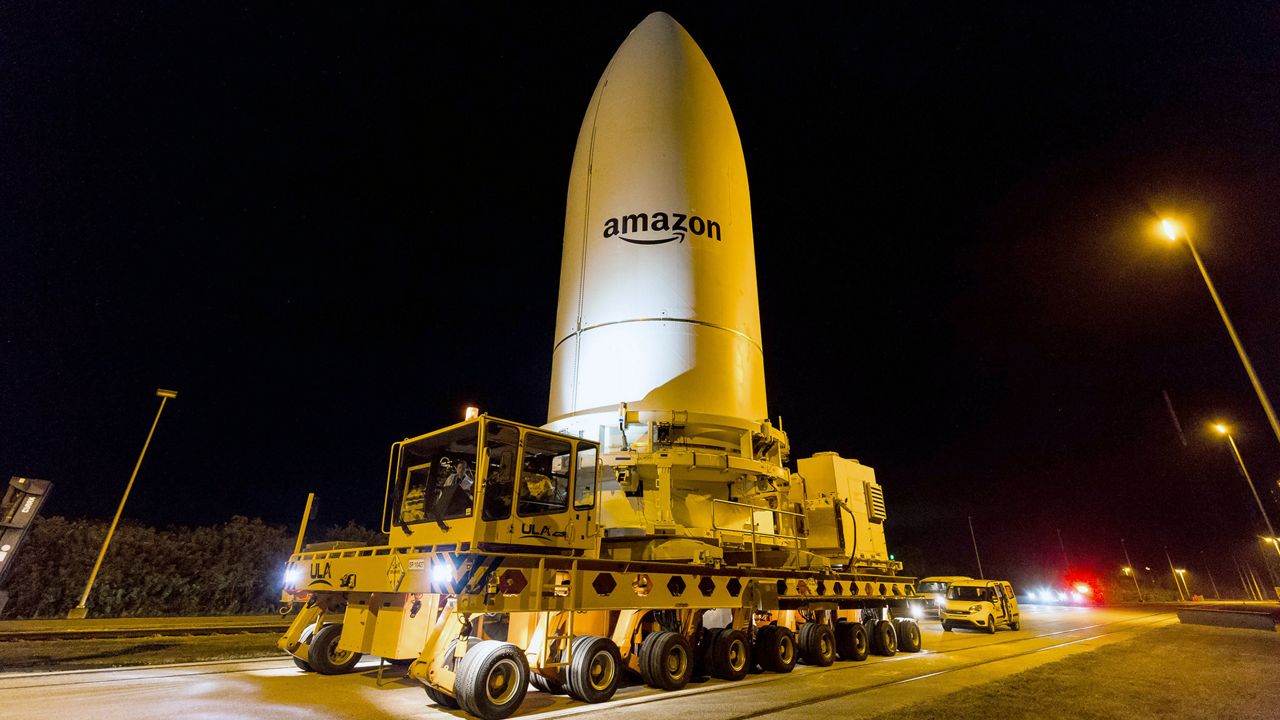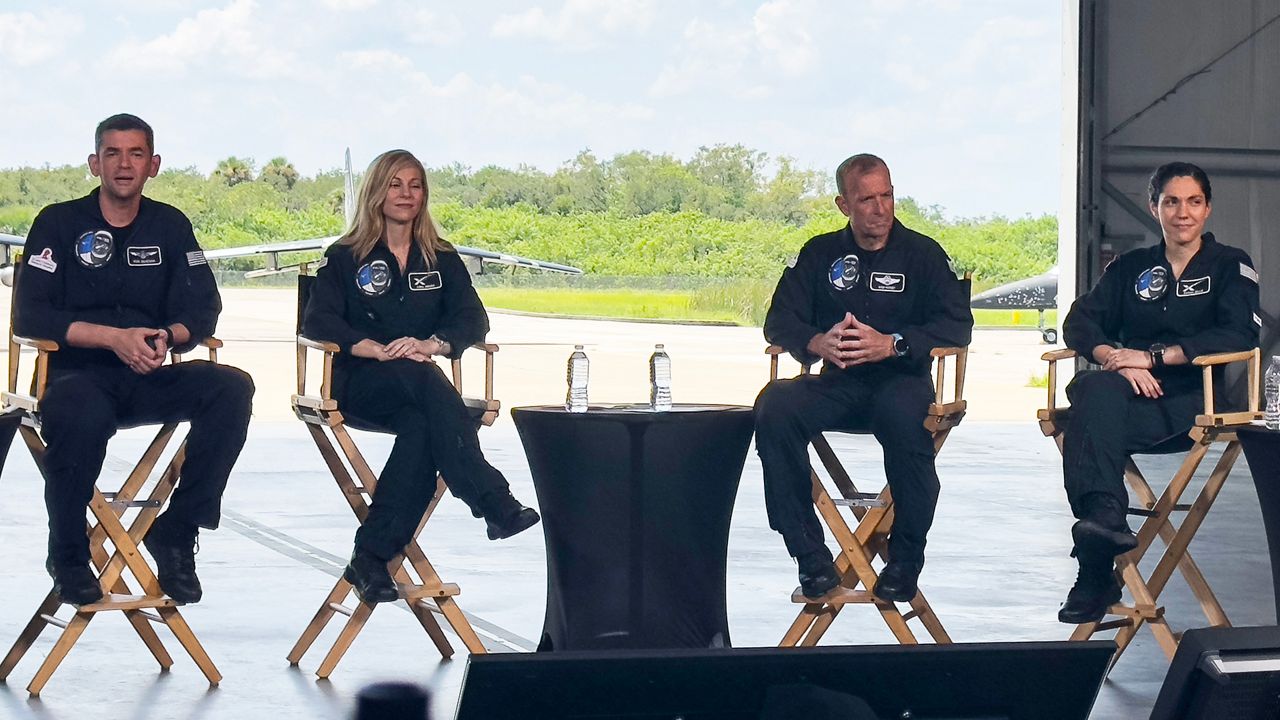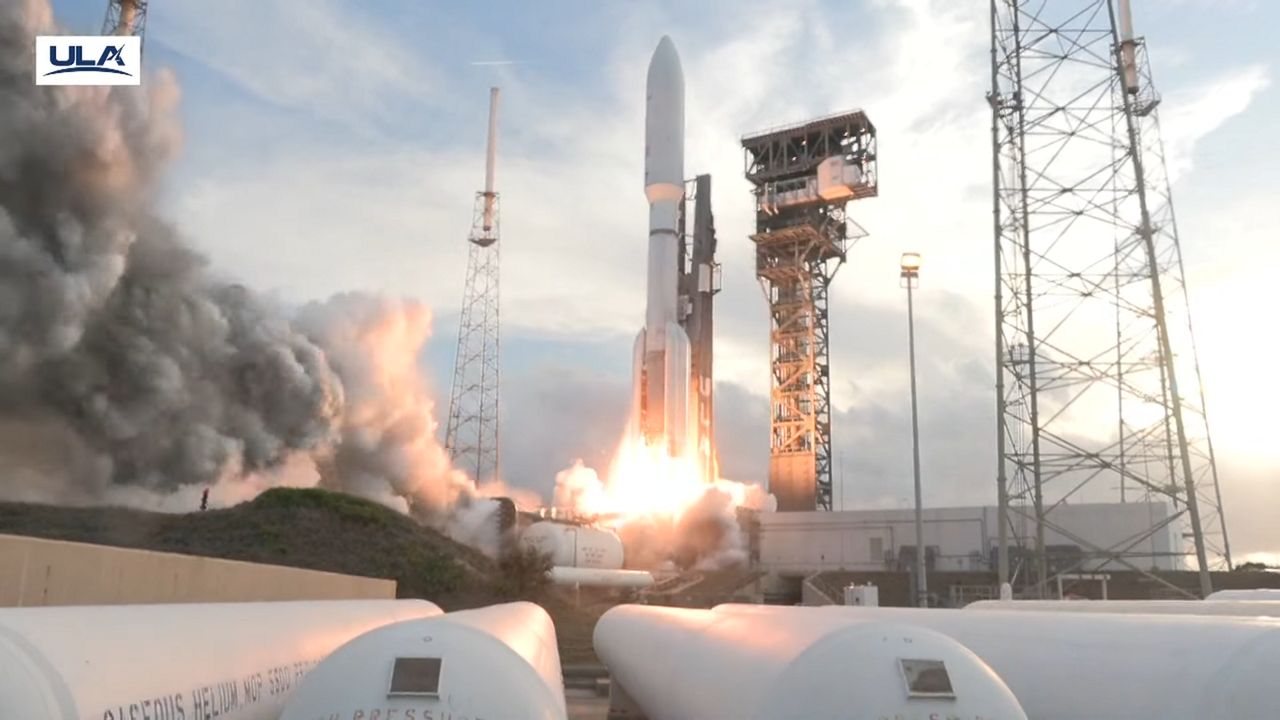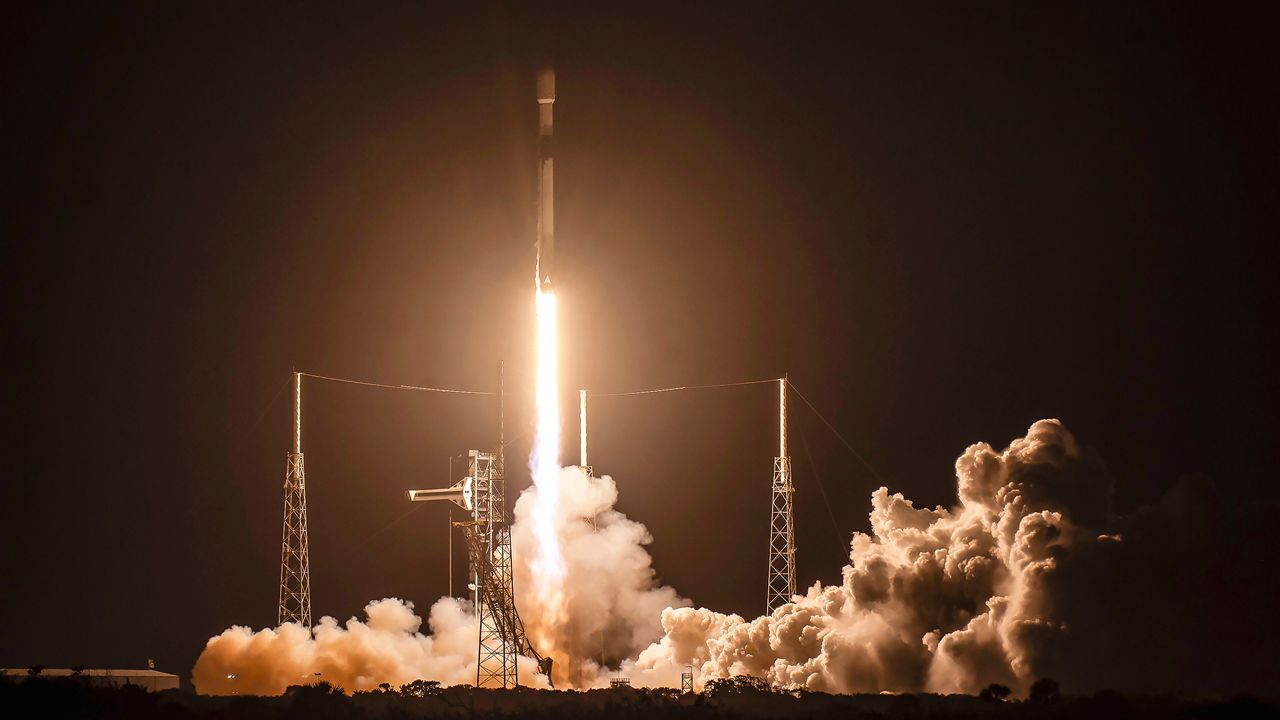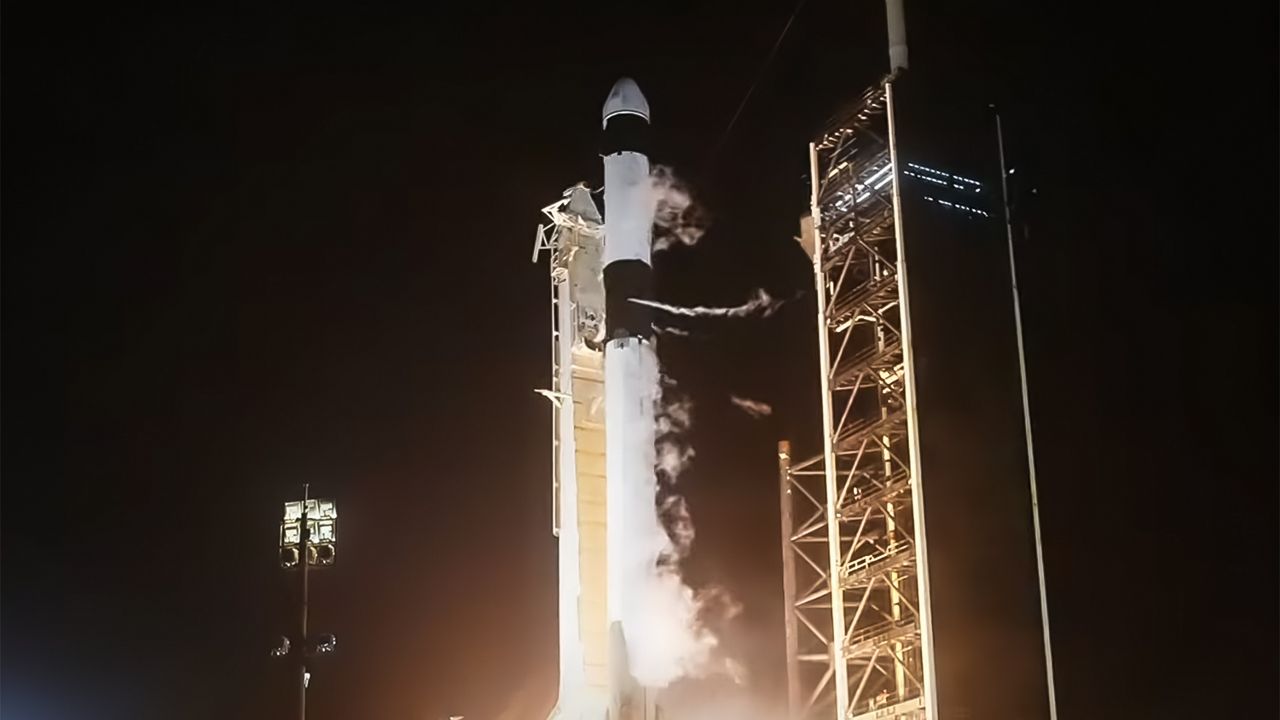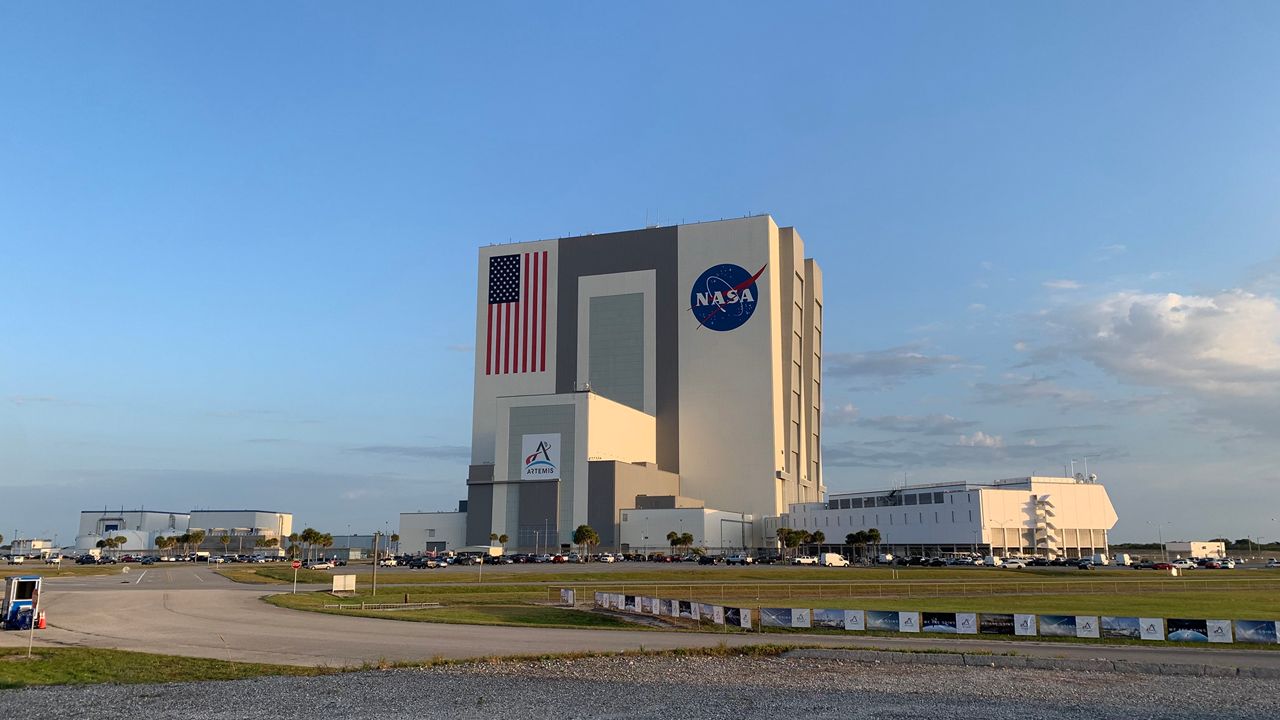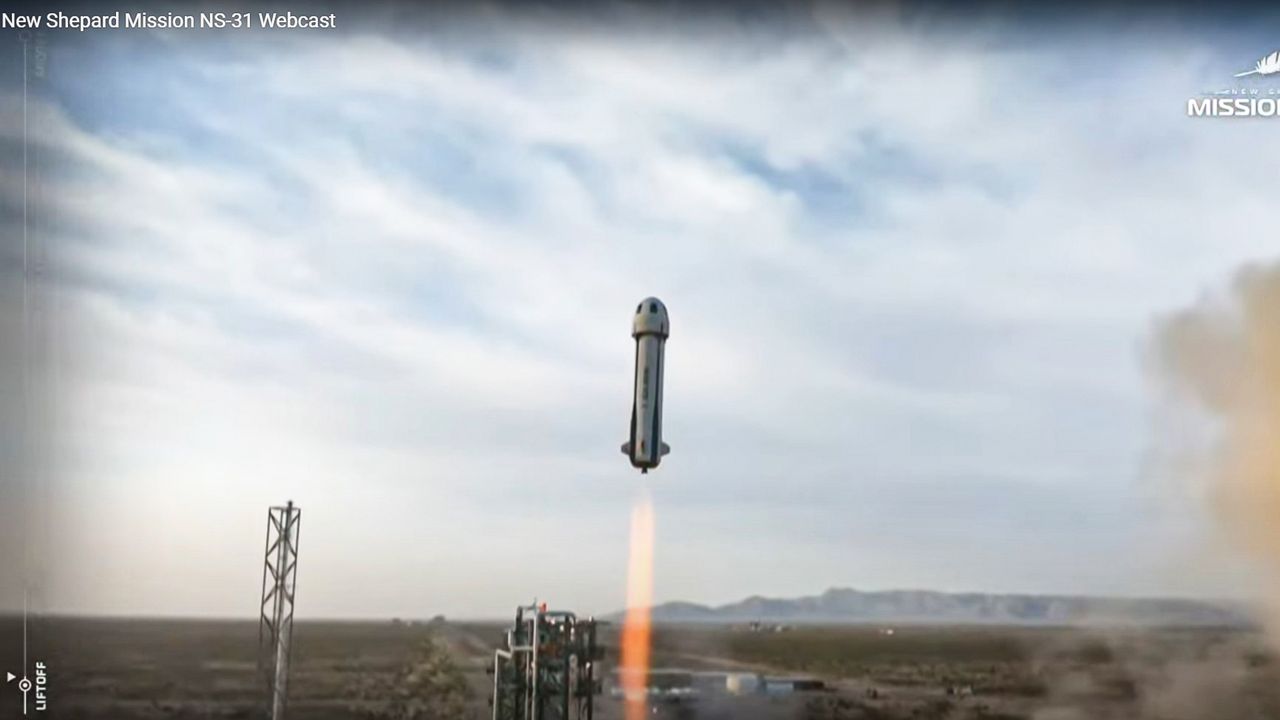CAPE CANAVERAL SPACE FORCE STATION — The United Launch Alliance is preparing its Atlas V rocket to take up Amazon’s Project Kuiper satellites on Wednesday night.
What You Need To Know
- More than 30 Project Kuiper satellites they will be launched from Space Launch Complex-41 at Cape Canaveral Space Force Station
- RELATED coverage: Amazon's Project Kuiper set for first official launch on Wednesday
- Get more space coverage here ▶
- 🔻Scroll down to watch the launch🔻
The Atlas V rocket will take off with nearly 30 Kuiper satellites from Space Launch Complex-41 at Cape Canaveral Space Force Station, stated ULA in a press release.
The two-hour launch window opens at 7 p.m. ET.
Originally, the window was going to open at noon.
ULA has stated that the launch forecast shows a 65% chance of favorable conditions, with the main worries being liftoff windows and cumulus cloud rule.
Unlike SpaceX’s Falcon 9 rockets, the 196-foot Atlas V rocket’s first-stage booster will not be landing on a droneship or landing zone. Instead, it will be jettisoned and fall into the Atlantic Ocean, where it will be picked up.
About the mission
Amazon is trying to be like SpaceX and launch their own communications satellites. SpaceX has thousands of its Starlink satellites orbiting the Earth.
But with this official launch of its 27 satellites, Amazon will kick off a “catch up” mission against SpaceX.
“Project Kuiper will deliver high-speed, low-latency internet to virtually any location on the planet, and we expect to begin delivering service to customers later this year. Our first-generation satellite system will include more than 3,200 advanced low Earth orbit satellites, and we’ve secured more than 80 launches to deploy that initial constellation, with each one adding dozens of satellites to the network,” stated Amazon.
Once the satellites have been deployed from the Atlas V rocket, they will do a series of automated steps to get to their assigned orbit of 392 miles (630 kilometers).
The 27 satellites will then travel at more than 17,000 miles per hour (27,359 km per hour) as they orbit our little round Earth about every 90 minutes, explained Amazon.
Seven South American countries will be the first ones to use the Kuiper communications satellites.
Amazon shared what the future holds for its satellites.
“Over the next few years, Kuiper and ULA teams will conduct seven more Atlas V launches and 38 launches on ULA’s larger Vulcan Centaur rocket. An additional 30-plus launches are planned across our other launch providers: Arianespace, Blue Origin, and SpaceX,” it stated.
ULA launched two prototype satellites for Project Kuiper in 2023.
